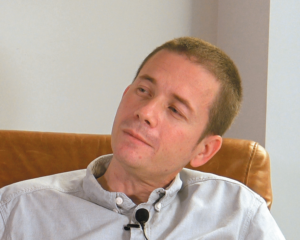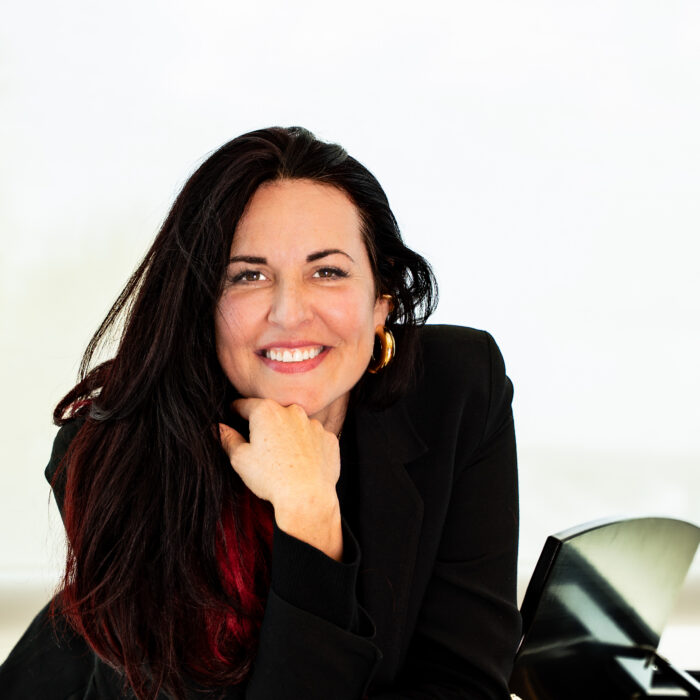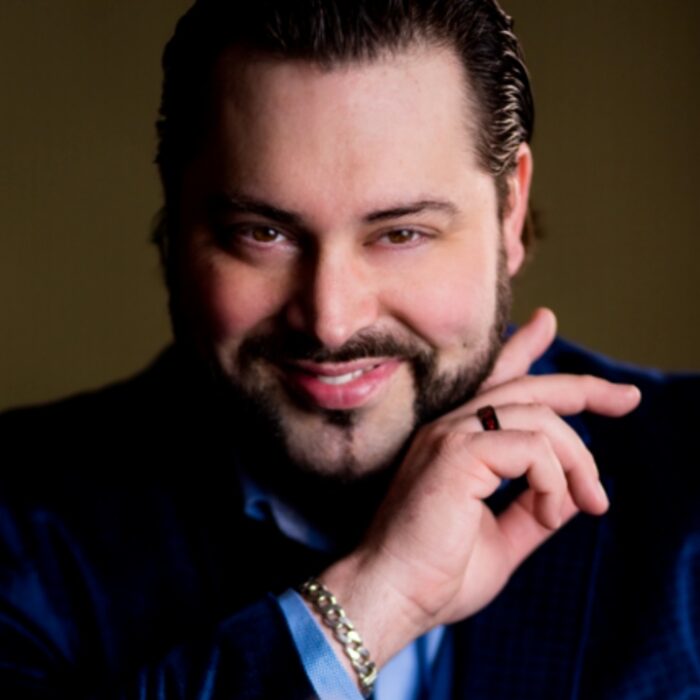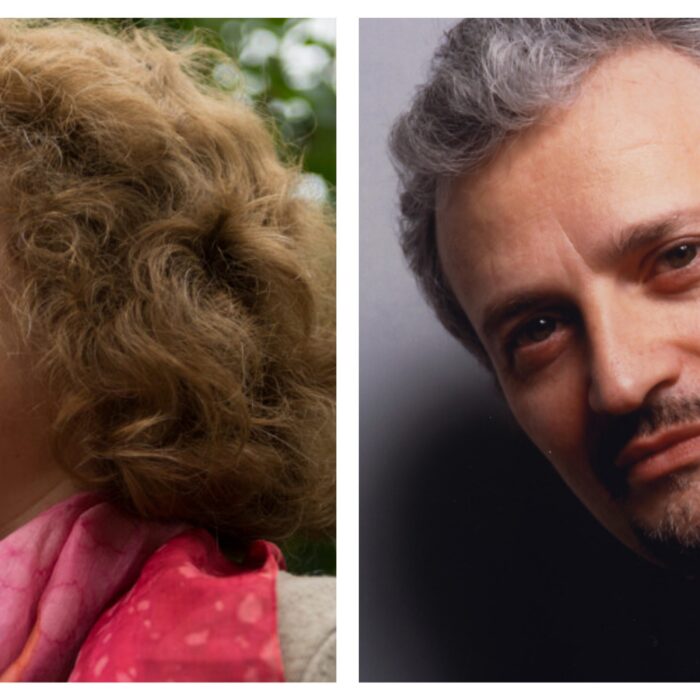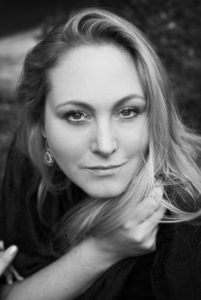
Q & A: Soprano Dorothea Herbert On Future of The Opera, General Optimism in Life Amidst COVID-19
By Dejan Vukosavljevic(Credit: Linda Rabisch)
When COVID-19 struck in March 2020, one of the final “live” performances to take the stage was a production of Dvořák’s “Rusalka” in Krefeld, Germany with dramatic soprano Dorothea Herbert in the title role.
For her, the experience was surreal.
“We performed on that night in a totally empty theater. There was no audience, just the darkness in the auditorium,” Herbert told OperaWire.
The young German soprano, who has so far performed in such opera houses as the Semperoper Dresden, Theater an der Wien, De Nationale Opera, and Nationaltheater Mannheim, encountered both the silence and the power of music. And that was the beginning of long months of pain, sorrow, longing, and grief.
Herbert, who is eager to get back to the stage, recently spoke to OperaWire about the future of the opera, general optimism in life, and COVID-19.
Operawire: Let me begin this conversation by asking how are you.
Dorothea Herbert: I’m actually pretty well, despite this second lockdown in Germany. I am trying to make the most out of this situation. After all, we’re all in the same boat. I would be lying if I told you that every day is perfect and bliss, as I obviously encounter dark days with cancellations and bad news. For example, “Der Ring des Nibelungen” at the Semperoper Dresden was canceled, and it was a big disappointment. I was supposed to sing Gerhilde, one of the Walküre. I have already sung the role at De Nationale Opera in Amsterdam.
To come back to your question, I am keeping my mind occupied. I am studying a lot. I am a quite optimistic and positive person in general. Here, now, I terribly miss the stage and the connection to my colleagues. I have a feeling that I will probably explode from enthusiasm and joy once when I’m back onstage.
OW: Right before the first lockdown, in January and February 2020 you were the cover for the role of Eva in Wagner’s “Die Meistersinger von Nürnberg” at the Semperoper Dresden, with Christian Thielemann conducting. Did you sense the incoming danger?
DH: At the beginning of 2020 I was really busy. I did two performances of “Der Freischütz” at the Semperoper on Jan. 3 and 5, and on Jan. 6 I started the rehearsals for “Die Meistersinger von Nürnberg.” I have to say that the situation looked quite normal, it was business as usual. We did not anticipate any big event coming our way.
We had all read and watched in the news about the new virus emerging in China, but up to that point it hadn’t been detected in Europe. It was the danger that seemed so far away that I wasn’t even thinking about it. The opera has a huge chorus, and also there was the huge orchestra of the Semperoper Dresden. I just felt very happy with the rehearsals. At that time, nothing was indicating the mayhem that was approaching. We just had a wonderful atmosphere on the set.
OW: What were your artistic impressions from the collaboration with Maestro Christian Thielemann?
DH: That was my first time working with Maestro Thielemann. You know, this may sound like a cliche. I am a German girl with quite a dramatic voice, and working with Maestro Thielemann was my lifelong dream. I am not even sure if I can classify myself as a dramatic soprano, but I sing that kind of repertoire.
In 2016 I sang my first Senta in “Der Fliegende Holländer” and I was also a Bayreuth scholar. That was the first time that I actually was in Bayreuth, attending the festival and seeing performances. Maestro Thielemann is the Artistic Director at the Bayreuth Festival, and he is renowned for his performances of Wagner operas.
So, I really liked “Die Meistersinger von Nürnberg,” and doing this opera with Maestro Thielemann was a dream come true. He has extremely high standards. We had four stage rehearsals, with me singing the three rehearsals, and Camilla Nylund did one rehearsal. I sang the first dress rehearsal in the morning, and then after the break, I sang the second rehearsal.
At one moment, I was sitting backstage, and I did not notice Maestro Thielemann coming. I was just thinking about the rehearsal, my mind was all about the opera. He came to me, I looked up and he just tapped my shoulder and said: “No need to be nervous.” On one hand, it was such a friendly and nice gesture, but I was even more nervous.
I had a particularly difficult scene coming. When it ended, he looked at me over the orchestra and just said: “Nice.” My heart was jumping at that moment. I felt this connection with Maestro Thielemann which was so nice and so specific.
OW: What did you do during the first lockdown in order to keep yourself positive and productive?
DH: I have to say that I was really very busy at the end of February 2020. Interestingly enough, at that time I got sick. I had a fever and I was coughing. My doctor just asked me if I were in Wuhan, and that was it. The news that was coming regarding COVID-19 got worse day by day. I began with my rehearsals for “Rusalka” at the Theater Krefeld und Mönchengladbach, with March 15 being the premiere date.
We performed on that night in a totally empty theater. There was no audience, just the darkness in the auditorium. The opera was broadcast live. I was still a little bit short of breath, and I felt very tired. That was my farewell with the live opera and performances for quite some time.
The rehearsals for “Rusalka” were a very big effort, but despite everything, I successfully made it to the premiere date. And then the first lockdown came. I have to admit that I was actually happy that I had some proper time to rest after so much work during the previous months.
I really had this big need to rest. During the first three weeks of the lockdown I did not practice, I was just resting. I actually enjoyed all that free time. Everything seemed so scary, as nobody knew what exactly was going on, besides this novel virus that was causing so much sickness and death. I tried not to watch that much news. I kept informed, of course, but I tried not to overstress.
After that initial period, I pulled myself together. I went on very long walks every day, and I listened to a lot of music. I also practiced a lot. At that time I got the news that “Salome” at the Theater Hagen that was due in May was canceled.
Even without “Salome,” I had a lot to do to keep myself busy. I started to practice for the incoming production of Leoncavallo’s “Zazà” at the Theater an der Wien, and also for “Die Walküre.“ On top of everything, I had to revise “Rusalka” because singing in the Czech language is not that easy. The remaining performances of “Rusalka” at the Theater Krefeld und Mönchengladbach were eventually canceled, but I did not know at that time what would happen, so I had to practice the role. Above all, I really tried to stay optimistic.
OW: In September 2020 you performed in Leoncavallo’s “Zazà” at the Theater an der Wien. What were your impressions? Did you feel safe and protected during rehearsals?
DH: The Theater an der Wien did a really good job with the production of “Zazà,” and I was very happy to be a part of it.
Upon arrival in Vienna, we were all tested with the PCR tests. There was one isolated room at the opera house, and we were coming in very small groups, so there was no crowding. Social distance was respected at every moment even during that initial PCR testing. We got the results the same day, and everybody tested negative, so we were able to proceed.
We were divided into three groups – red, yellow, and green groups. The artists, the director, the conductor, and the members of the production team were in the red group. Basically, everyone that was onstage. Makeup artists and costume designers were in the yellow group. Members of the yellow group had to keep a mandatory distance from the members of the red group. Of course, that was not possible for the makeup artists, but they had to wear a face mask, protective glasses, and also a protective shield during the makeup process. Members of the technical teams were in the green group. Everybody had to wear a face mask in the theater at all times.
Both the rehearsal time and the performances went really well. We were tested every three days, and there were no incidents in the sense of any infection in the theater. Theater an der Wien really did a magnificent job in terms of the protection of the artists and the staff, and I felt very safe and protected along the way.
I avoided going to closed spaces, like restaurants, but we had rehearsals in August and September, so we had lovely and warm weather. In that way, on those rare occasions that I went to the restaurant, I was able to be outdoors. Also, I was socializing only with the colleagues from the red group, who were tested every three days, just as myself. I had no other contacts. We always kept distance relative to each other and paid attention to keep a very strict distance to other people.
I never felt that I was restricted in any way. Because if we don’t sing, we don’t get paid.
OW: The end of October signaled another lockdown as the second wave of COVID-19 crashed onto Europe in full force. Did you expect such a development?
DH: From Vienna, I went to Krefeld. And that was a completely different safety concept, as we were not tested at all. However, we had to obey very strict rules regarding the mandatory distance onstage. Thus, I really felt safe in Krefeld as well, similarly to Vienna.
In Vienna, we did a fully staged production with close interactions onstage, but Krefeld had a different approach. For me, both approaches worked. But in Krefeld, I really came to the reality of the concept of social distancing onstage and doing the production with social distancing. I was just happy to be on stage and to interact with my fellow colleagues.
We had few performances of Act one of “Die Walküre,” with me singing Sieglinde, and then the second lockdown came into effect. I really thought that it would be a much stronger lockdown and not just the Lockdown Light. I was also under the firm impression that we would be back in theaters in December. I really did not think that the closures would take so much time, with theaters in Hessen shutting down all the way until April 2021.
I hoped for a hard lockdown, to make it as strong as possible in order to bring the number of infections quickly down. However, it took almost two months to realize that the light lockdown was not working. I did not expect that the infection numbers would remain that stubbornly high. I don’t blame anyone. I do understand that the authorities are in a difficult position as well.
My performances in Mannheim in December were canceled, so that was the price to pay for me.
OW: You lost some work in the last 10 months. What do you think of the overall support for the cultural sector in Germany?
DH: I was lucky about my situation, as until August 2020 I was employed by the Theater Krefeld und Mönchengladbach. That means that I received a monthly salary. Then I went to Vienna, did the production of “Zazà,” and ended up in Krefeld doing Act one of “Die Walküre.” I somehow made it through without being seriously financially hurt.
In general, I think that the government was completely overwhelmed by finding solutions for so many different areas of the economy, cultural life, and other things. I am not really sure that the government really understood what kind of support a freelancer opera singer would need in order to survive through these dark times. It is difficult to understand the concept of freelancer opera singers and musicians that work all over the world. I can see that the government is trying to do the best, but that the help is not reaching a lot of people in need.
OW: How are you facing such a dark environment? What are your daily sanctuaries?
DH: You know, it really took me some time to go to the stage, because when you have a bigger voice, it takes more time to develop. I am used to being patient and to make the best out of things.
I don’t have daily rituals, but I do meditate a lot. My meditation practices bring me lots of calmness, and they take a very important place in my daily routine. I practice daily, and I really practice a lot. Nobody can really tell for how long this all is going to last, so my job is to keep my voice healthy and fresh. I also listen to a lot of music.
At this moment, for example, I rediscovered Bruckner. I listen to Bruckner’s symphonies. I discover new music and listen to operas that I have never listened to before. I have also listened to a lot of jazz and electronic music these last few days.
Gyms are closed at the moment, but I regularly go to the gym otherwise. For now, I am doing my exercises at home.
To summarize, I do not listen to only opera, but lots of different genres of music. During these dark moments, I can feel that more clearly. Music gives me lots of energy. And that is probably my biggest sanctuary.
OW: What do you expect to become the new normal post-pandemic, especially regarding your job?
DH: That is indeed a very difficult question, and very difficult to offer a smart answer at the moment. I could imagine that audiences will be required to have fast COVID-19 tests before entering the theater. Obviously, that would spike up the overall costs of the visit to an opera performance, at least in the transition period.
I also firmly believe that in the end, we will go back to normal fully-staged productions, but that will also take some time. I also expect a transitional period within that process, when we will still be required to do social distancing onstage. That full comeback will not happen overnight. I envision the production without choruses, or with smaller choruses, at least initially. And, for example, a chorus that could be video-transmitted, like the chorus for “Lohengrin” in Bayreuth in 2022.
I don’t think that broadcasts can ever replace a live performance in the opera house, as the live performance is a visceral experience. That feeling can not be had during the broadcast.
OW: You are scheduled to make a big debut at the Glyndebourne Festival 2021, as Leonore in “Fidelio.” Who is Leonore to you?
DH: Since that will be a Glyndebourne tour, the rehearsals will start in September, and the opera will premiere in October 2021. That gives me another eight months of hope that the vaccination against COVID-19 will really speed up and enable us to do the production. I am not thinking about the chorus at the moment, as there are other solutions. I am optimistic and positive that Glyndebourne will find a solution.
I lived in London for quite a long time. I auditioned for the Glyndebourne chorus three times, and was rejected every time – and in the midst of the first lockdown, I got my contract for “Fidelio” at Glyndebourne. It is amazing.
Leonore is a very brave woman. She obviously risks her own life in order to save her husband. That is a huge and profound love. She is all in for justice, for love, for sacrifice. She is also very resilient, very tough. At the same time, she clearly displays her sensitivity, as she feels guilty because of what she does to Marzelline. She is a heroine, and she shows that through her singing. The singing part is so beautifully written and clearly displays Leonore as a fighter.
OW: Powerful transformations happen on the stage of the opera house. Are you worried about the future of opera?
DH: When I go to the stage, I just need to forget about the voice. It must be there, present, ready to be deployed. And that especially holds true with technically challenging roles. The voice must be there, in the muscles, in the memory of the muscles. And at that moment the transformation begins – when a singer also becomes an actor. I am not Dorothea anymore at that moment, but Salome, Sieglinde… And that transformation is a powerful process.
All that being said, I am not worried about the future of the opera. I think that people really crave opera and that they crave the arts in general. Again, I think there will be a transition time, that people really need to have an open mind, feel safe and comfortable going to the opera house and see live opera. To be quite honest, I think that will take a bit of time.
In the end, I believe that people are hungry for live opera more than ever.
OW: What gets you up in the morning?
DH: It maybe sounds like a cliche again, but that’s a huge love for music. Of course, not every day is the same – sometimes I feel the need to stay in my bed until lunch. In the end, I really love singing. And I am living for the moment when I step back onto the stage.
In that way, the past memories definitely get me up in the morning. For example, in the final moments of “Die Meistersinger von Nürnberg,” I was on stage, and the entire chorus was around me. Maestro Thielemann in the pit, a huge orchestra playing final sounds. That huge wall of sound hitting me in the chest. I live for that experience. Again.
